US Says Onus Now On Iran To Agree To Nuclear Deal
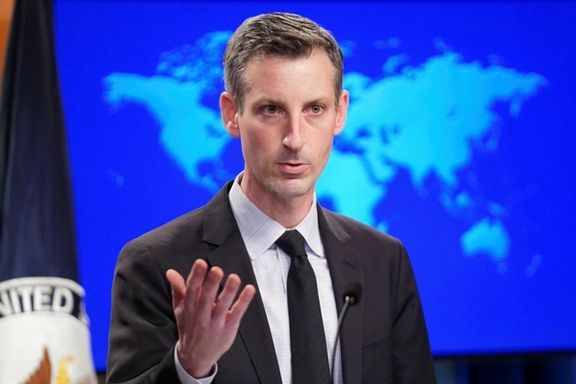
US State Department said on Tuesday that the onus is now on Iran on whether to enter into a mutual return to compliance with the 2015 nuclear deal, JCPOA.

US State Department said on Tuesday that the onus is now on Iran on whether to enter into a mutual return to compliance with the 2015 nuclear deal, JCPOA.
Department spokesman Ned Price reiterated in his daily briefing on Friday that a return to the deal remained uncertain and was not imminent, despite optimism in recent weeks that indirect talks between Iran and the United States could soon produce an agreement. He made a similar statement on Monday saying a deal is not imminent.
The negotiation in Vienna that started more than 11 months ago have ended without a result, although all sides said only one or two issues remained to be agreed.
However, one major issue is Iran’s demand to remove its Revolutionary Guard from the US Foreign Terrorist Organization (FTO) list. The Biden Administration might have made an offer to Tehran in regard with the FTO listing and awaits a response.
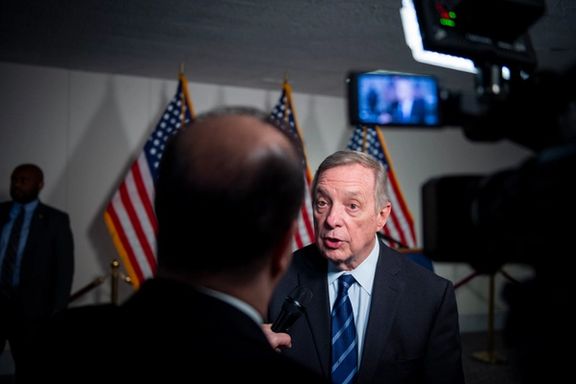
Democrats and Republicans agree on curbing Iran’s nuclear and ballistic missile programs, but they disagree over whether the 2015 nuclear deal should be revived.
The United States Senate Democratic Party whip Dick Durbin told Iran International’s correspondent Arash Aalaei on Monday that “the premise” of reviving the 2015 deal, the JCPOA (Joint Comprehensive Plan of Actions) was “sound to stop Iran from becoming a nuclear power.” This, Durbin said was “obviously in the best interests of regional and world peace.”
Durbin cited Russia as a nuclear-armed power. “We learned every single day in our calculations on Ukraine that the threat that Russia poses to the world with its nuclear weapons changes the equation,” he said.
Answering a question about the concerns of other regional states, particularly Israel, which is believed to have nuclear weapons, Durkan reiterated that peace required “a credible, enforceable plan to stop Iran from developing nuclear weapons,” which he said would be a “threat to every nation in the region…including Israel.”
Listing and Delisting
Many American and Israeli politicians oppose the JCPOA on the grounds that it does not require unilateral reductions in Iran’s ballistic missile capability Iran has developed for lack of an effective air-force. They also argue that restoring the JCPOA at the cost of removing the Iranian Revolutionary Guards (IRGC) from the US list of ‘foreign terrorist organization’ is too high a price.
Israel’s Prime Minister Naftali Bennett and Foreign Minister Yair Lapid recently called on Washington not to lift the designation, the only one of part of the armed forces of a sovereign state, even though a raft of other US sanctions would remain on the IRGC.
In response to another question by Iran International’s correspondent, Durbin said Iran had to prove that a restored JCPOA would not mean resources being available for the IRGC. “The Iranians have to forswear the terrorism that threatens the stability of many other countries too, and if they will do that and prove it with their conduct, I think there are chances we can move toward normalcy,” he claimed, without explaining what ‘normalcy’ might mean.
Republican senators remain steadfastly opposed to renewing the JCPOA, from which former president Donald Trump withdrew the US in 2018, imposing ‘maximum pressure’ sanctions. Republican Bill Hagerty, a close Trump ally, told Fox News Monday that “reviving the disastrous Iran nuclear deal” was “a vanity project for John Kerry [former Secretary of State) and [President] Joe Biden. They're putting America's strategic interests in the rearview mirror while doing anything they can to cut a deal with the largest state sponsor of terror.”
Yemen War
Opposing removing the IRGC from the list of ‘foreign terrorist organization,’ Hagerty argued that “we saw what happened when we took [Yemen’s] Houthis [Ansar Allah] off the list…they immediately went back to their terrorism.” The Biden administration delisted Ansar Allah in February 2021 in “recognition of the dire humanitarian situation in Yemen” following criticism from aid organizations.
The Wall Street Journal suggested Monday that efforts to revive the JCPOA, which have been going on for 11 months, hinge on the designation of the IRGC. US State Department spokesman Ned Price said Monday that “there has been significant progress in recent weeks, but I want to be clear that an agreement is neither imminent nor is it certain.”
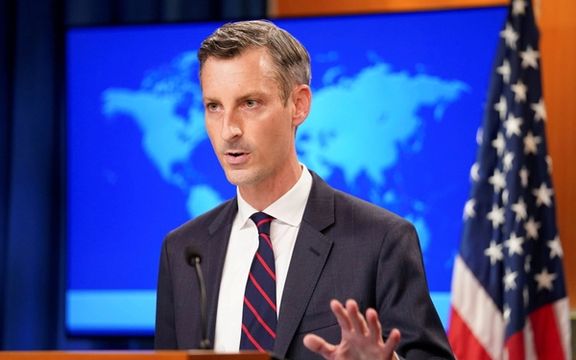
US State Department said Monday that a nuclear deal with Iran “is neither imminent nor is it certain”, as talks in Vienna have paused for more than ten days.
The department’s spokesman Ned Price in his daily briefing said, “there has been significant progress in recent weeks, but I want to be clear that an agreement is neither imminent nor is it certain.”
The statement came as National Security Advisor Jake Sullivan slammed Iran’s support for Yemen’s Houthis as the rebel force launched multiple attacks against Saudi Arabia over the weekend. Sullivan repeated US accusations that Tehran is supplying missiles and drones to the Houthis, violating a United Nations arms embargo.
It is clear that one major remaining issue in the Vienna talks is Iran’s demand to remove sanctions imposed by the Trump administration on the Revolutionary Guard, IRGC. Multiple reports have indicated the Biden Administration is weighing its options regarding the Iranian demand.
Opposition both in the United States and abroad has been strong against taking such a step. Both Republican and Democratic lawmakers have expressed concern over the possibility of removing the IRGC from the US Foreign Terrorist Organization (FTO) list.
Israel’s prime minister and foreign minister forcefully and publicly opposed the notion in a statement on March 18, while the United Arab Emirates is reportedly “shocked” at the notion.
The Jerusalem Post reported that some in Abu Dhabi “are in great shock,” and their views on the issue are similar to Israel’s.
Media reports have said that the Biden administration has an option to remove the FTO designation in exchange for a promise by Tehran not to use the IRGC and its proxy forces in the region to harm US interests. Both Israel and its Arab friends in the region view a possible reliance on Tehran’s promises as a naïve and dangerous notion.
It is not clear when and if the Vienna talks will resume. Price on Monday said he can offer no information and urged Tehran to free “innocent Americans and others” held in Iran, which is Washington’s “top priority.”
Both Saudi Arabia and the UAE have had difficulties in their dealings with Washington, which last year took steps distancing itself from Persian Gulf allies. The Biden team removed the Houthis from its terror designation and restricted weapons sales to the Saudi coalition fighting in Yemen.
Saudi Arabia and the UAE which had close relations with the Trump administration have not responded to Biden’s calls for more oil supplies in the wake of Russia’s invasion of Ukraine and have taken a neutral posture toward Moscow.
Price tired to minimize disagreements with the UAE when asked about the visit of Syrian president Bashar al Assad to the Emirates this week, which the administration has criticized.
Our Emirati partners, they are a partner of ours, and they will continue to be and are an important partner of the United States. We share a number of interests, including the security interests, our shared interest in bringing to a close this conflict in Yemen. We have a shared interest in terms of regional stability, in terms of pushing back on Iran, in terms of helping our Emirati partners defend themselves against the attacks that have emanated from Yemen, from the Houthis. And of course, we are committed to all of that,” the spokesman said.
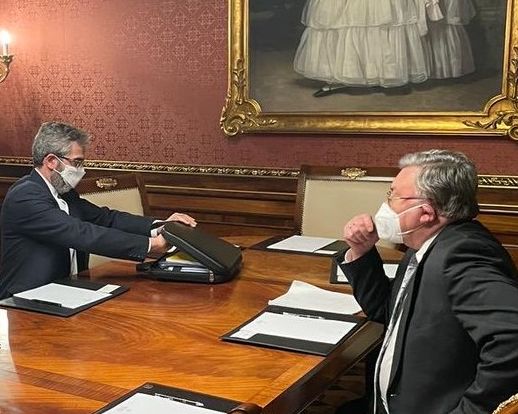
A former senior lawmaker, who has been warning about Russia's intentions in Iran’s nuclear talks, says he is now more optimistic about a deal with Washington.
Heshmatollah Falahatpisheh has written several articles and given many interviews during the past four weeks warning about Russia's obstruction of Iran’s nuclear talks with the West and calling on the Iranian government to adopt an independent approach. He has also warned the authorities not to fall in Russia’s trap and avoid becoming hostage to over-reliance on Moscow and Beijing.
This comes while Iranian Supreme Leader Ali Khamenei who delivered two speeches in the past two days has not mentioned the nuclear talks and a possible deal with America. As Iran watcher Jason Bradsky observed in a series of tweets , Khamenei "gave a long, tedious lecture on the need for a knowledge-based economy. Khamenei stressed the need of not tying the economy to U.S. sanctions, but he hedged as usual."
Brodsky quoted Khamenei as saying: "of course this doesn't mean we are not seeking ways to lift these sanctions and those who are active in these fields should follow up on that," and added that this was all Khamenei had to say about the negotiations. However, Brodsky noted, "That doesn't mean the establishment isn't interested in a deal, but it is only interested in one on its terms," and that is "lifting the sanctions."
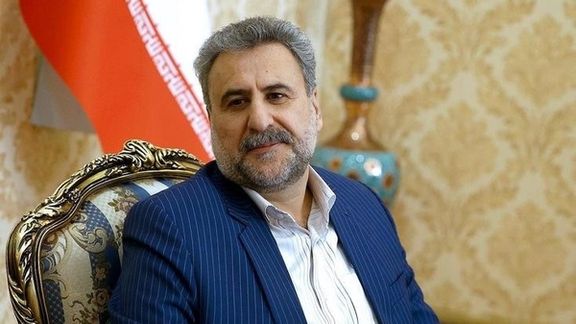
In his interview, Falahatpisheh, the former head of the Iranian parliament's National Security and Foreign Policy Committee, regretted that the talks were delayed for at least four years due to factional infighting among politicians in Iran. He observed that as a result, Iran's oil exports dropped to as little as 300 thousand barrels per day during the Trump administration.
He said that during the Biden administration, the figure rose to around 1.3 million barrels, however, Iran lost billions of dollars in oil revenues as it sold its output at a discounted price. He estimated that during the past 11 months Iran lost around $40 million a day, or at least $13.5 billion.
The conservative politician said Iran's first mistake was to hand over decision making to Russian negotiator Mikhail Ulyanov, and its second mistake was holding talks with all the JCPOA member states while it needed only to talk with the United States, a country that could have lifted all the barriers on the way of international trade for Iran.
Falahatpisheh opined that by winning a deal with the United States, Iranian leaders can move the country away from international tensions. He added that Iran needs to reduce tensions at the national, regional and international levels.
Meanwhile, he claimed that Iran's winning card was the resistance of its people against sanctions hinting that people carried the economic hardships without causing major unrest. But he failed to mention that their silence was largely the result of the regime's heavy-handed and violent suppression of dissent.
Two other winning cards, Falahatpisheh said, was Iran’s ability to advance in nuclear technology against all odds, and Tehran's self-reliance in defense. The latter, he said was what prevented the country from experiencing a fate similar to that of Ukraine.

Some Democrats in Congress express concern that renewing the 2015 Iran nuclear deal would be of less value as the United States has lost time and leverage, The Hill reported.
In the report published on Monday, The Hill also noted a complaint from Congresspeople that they were unaware of details in the Vienna nuclear talks.
Former president Donald Trump pulled the US from the agreement, the JCPOA in 2018, imposing ‘maximum pressure’ sanctions and prompting Tehran from 2019 to boost its nuclear program beyond JCPOA limits.
The Hill added that JCPOA opponents were also arguing that Russian involvement in re-implementing the deal, including removing enriched uranium, would see Tehran paying fees to Russia when the US is sanctioning Moscow over Ukraine.
“There’s been a little bit of insight as to how things are going but there’s no bigger picture insight,” said Senate Foreign Relations Committee Chairman Bob Menendez – one of four Democrats who in 2015 backed an unsuccessful anti-JCPOA Republican resolution. “It’s hard to judge.”
Menendez said that “if Iran is going to roll back its nuclear program, if it’s finally going to come clean on its efforts to achieve nuclear weapons and give access to the IAEA [International Atomic Energy Agency] …if Iran is going to constrain its missile program…those are good things.” But Menendez argued that “if what we may have…is just a rolling back of time, you can’t roll back knowledge.”
Tehran has refused calls for limiting its ballistic missile program and ending its aggressive regional interventions.
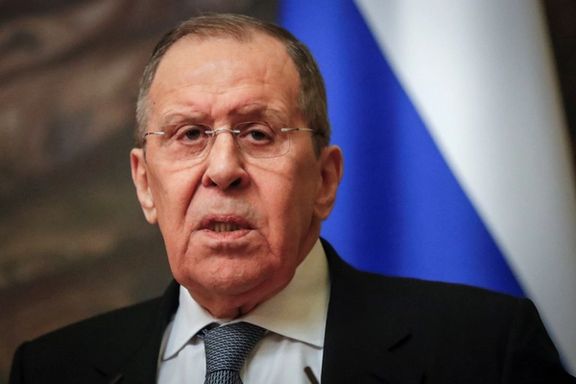
Foreign Minister Sergei Lavrov says Russia never betrays Iran and does not pursue selfish interests in the reinstatement of the 2015 nuclear deal despite a possible boost to world oil supplies.
Lavrov made the remarks on Saturday in response to a question whether restoring the Joint Comprehensive Plan of Action (JCPOA) was advantageous to Russia, considering that it would resume Iranian oil supply to the global market.
"We never betray our friends in politics. Venezuela is our friend, and Iran is a state that is very close to us. Secondly, we do not pursue selfish interests, unlike the Americans", he told finalists in the Leaders of Russia competition.
"You can see what they [the Americans] are actually doing, trying to spite Russia and teach it a lesson,” Lavrov added by considering adding Iranian, Venezuelan and other oil supplies to the international market.
"So, the Americans have been contacting Saudi Arabia, the Emirates and Qatar regarding oil and gas. All of those countries, just like Venezuela and Iran, clearly said: when we discuss issues pertaining to the appearance of new actors in the oil market, all of us are committed to the OPEC+ format, where quotas for every actor are discussed and agreed upon by consensus", he said, noting that "For now, I see no reason to believe that this mechanism may somehow be dismantled. No one is interested in that”.